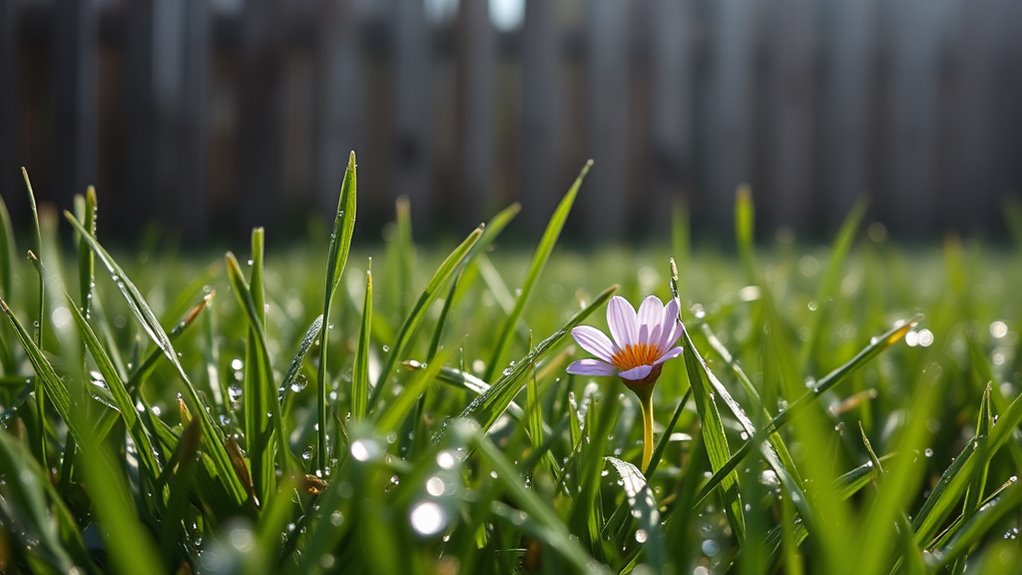My Brain Was Always Tired Until I Tried This One Quiet Habit
Did you know that nearly 80% of people report feeling mentally exhausted at some point in their lives? If you find yourself in that statistic, you’re not alone. Many struggle with the constant noise of daily life, leading to burnout and decreased productivity. But what if a simple, quiet habit could transform your mental state? Discover how a mindful practice can bring clarity and balance to your mind, allowing you to reclaim your focus.
Key Takeaways
- Integrating quiet moments into your routine can alleviate mental fatigue and enhance clarity.
- Mindful practices like meditation and nature walks recharge your brain and improve focus.
- Embracing intentional pauses reduces anxiety and fosters a deeper connection to the present moment.
- A digital detox during meals or bedtime promotes mindfulness and self-connection.
- Regular exposure to nature boosts mental clarity and ignites creativity, combating brain fatigue.
Understanding Mental Fatigue
Have you ever wondered why your mind feels foggy after a long day? That’s mental fatigue, a common experience where your brain feels overwhelmed and sluggish.
It often occurs when you push yourself too hard, juggling multiple tasks without a slow routine to recharge. This constant demand can lead to decreased focus and productivity, leaving you feeling drained.
You mightn’t realize how crucial it’s to integrate moments of calm into your day. By allowing your mind to rest and reset, you can significantly improve your mental clarity and energy, making it easier to tackle your responsibilities with renewed vigor. Incorporating a simple mental detox routine can help alleviate feelings of burnout and promote overall well-being.
The Power of Quiet Moments
How often do you carve out time for quiet moments in your day?
In our fast-paced lives, it’s easy to overlook the healing power of silence.
Taking just a few minutes to pause can help clear your mind, reduce stress, and improve focus.
When you embrace quiet, you create space for reflection, creativity, and emotional balance.
This intentional stillness allows your brain to recharge, making you more resilient against mental fatigue.
Incorporating a stillness practice into your routine can unveil hidden beauty and profound insights in your daily experiences.
So, whether it’s a short meditation, a walk in nature, or simply sitting in silence, prioritize these moments.
You’ll likely find a renewed sense of clarity and energy throughout your day.
How a Slow Routine Transformed My Life
Embracing quiet moments paved the way for a slower, more intentional routine that transformed my life.
You’ll find that taking time to pause allows you to reconnect with yourself. Instead of rushing from one task to another, you’ll begin to savor each moment, cultivating mindfulness.
This shift not only reduces anxiety but also enhances focus, making daily activities feel less overwhelming. Adopting a slow routine promotes mental well-being and fosters a deeper connection to the present moment.
You’ll notice improved clarity in your thoughts and a renewed sense of purpose.
Simple Practices to Incorporate Quiet
While life often demands our constant attention, incorporating simple practices of quiet can significantly enhance your well-being.
Start by carving out a few minutes each day for silence; whether it’s a morning ritual or an evening wind-down, this time fosters clarity.
Consider mindful breathing—focus on your breath to anchor your thoughts.
Nature walks can also bring you peace; the sounds of rustling leaves and chirping birds create a soothing backdrop.
Lastly, try a digital detox during meals or before bedtime.
These moments of quiet not only recharge your mind but also cultivate a deeper connection with yourself and your surroundings. Embracing the transformative power of silence can lead to profound insights and self-discovery.
The Science Behind Mindfulness and Relaxation
Quiet moments not only offer a break from the noise of daily life but also serve as a foundation for understanding the science behind mindfulness and relaxation.
When you practice mindfulness, you activate areas in your brain associated with emotional regulation and stress relief. This helps reduce anxiety and enhances your overall well-being.
Relaxation techniques, like deep breathing or meditation, lower cortisol levels, promoting a sense of calm.
By focusing your attention on the present, you train your brain to respond more effectively to stressors.
Embracing these habits can recharge your mind, making it easier to handle life’s challenges. Additionally, incorporating mindfulness practices into your routine can further enhance your ability to manage stress and improve your mental clarity.
The Impact of Nature on Mental Clarity
How often do you find yourself feeling mentally drained after a hectic week?
Stepping into nature can be a powerful remedy.
Research shows that spending time outdoors boosts mental clarity and reduces stress.
The sights, sounds, and smells of nature engage your senses, helping to clear your mind and enhance focus.
Even a short walk in a park or a few minutes in your garden can recharge your brain.
Nature’s tranquility invites you to pause, breathe, and reconnect with the present moment.
Embracing these natural surroundings can transform your mental state and ignite your creativity, leaving you refreshed and ready to tackle challenges.
Embracing the Change for Long-term Well-being
Experiencing the rejuvenating effects of nature can be a catalyst for embracing change in your life.
When you step outside, breathe in fresh air, and soak up sunlight, you open yourself to new perspectives. This shift doesn’t just enhance your mood; it fosters resilience and promotes long-term well-being.
Start small—set aside time each week to connect with nature. As you cultivate this habit, you’ll notice a gradual transformation in your mindset and energy levels.
Embracing these changes not only enriches your life but also empowers you to tackle challenges with renewed vigor and clarity.
Make this commitment to yourself.





